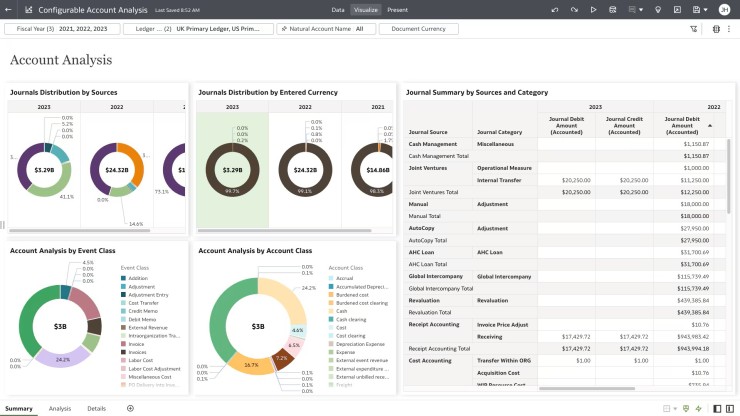Oracle Fusion Cloud ERP
- Read more about Oracle Fusion Cloud ERP
- Log in to post comments

Oracle Fusion Cloud ERP es una solución en la nube que integra, de forma centralizada, los procesos críticos de las áreas financieras, operativas y de la cadena de suministro.
La plataforma automatiza tareas rutinarias, centraliza la información en tiempo real y facilita la toma de decisiones estratégicas mediante módulos especializados que incorporan tecnologías como inteligencia artificial y machine learning para automatizar tareas rutinarias y anticipar anomalías en transacciones financieras.
La solución funciona bajo un esquema multitenant, lo que facilita la escalabilidad y reduce la necesidad de infraestructura on-premise..

